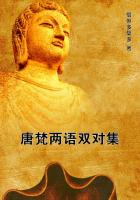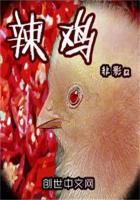He will use the real names of the parties, who in most cases are ready to confirm his testimony. As for the headlines, the sensational proclamations--they will come at the end.
I was walking along a public path that threads through a private Devonshire orchard and seems to point towards Devonshire cider, when I came suddenly upon just such a place as the path suggested.
It was a long, low inn, consisting really of a cottage and two barns; thatched all over with the thatch that looks like brown and grey hair grown before history. But outside the door was a sign which called it the Blue Dragon; and under the sign was one of those long rustic tables that used to stand outside most of the free English inns, before teetotallers and brewers between them destroyed *******.
And at this table sat three gentlemen, who might have lived a hundred years ago.
Now that I know them all better, there is no difficulty about disentangling the impressions; but just then they looked like three very solid ghosts. The dominant figure, both because he was bigger in all three dimensions, and because he sat centrally in the length of the table, facing me, was a tall, fat man dressed completely in black, with a rubicund, even apoplectic visage, but a rather bald and rather bothered brow. Looking at him again, more strictly, I could not exactly say what it was that gave me the sense of antiquity, except the antique cut of his white clerical necktie and the barred wrinkles across his brow.
It was even less easy to fix the impression in the case of the man at the right end of the table, who, to say truth, was as commonplace a person as could be seen anywhere, with a round, brown-haired head and a round snub nose, but also clad in clerical black, of a stricter cut. It was only when I saw his broad curved hat lying on the table beside him that I realized why I connected him with anything ancient. He was a Roman Catholic priest.
Perhaps the third man, at the other end of the table, had really more to do with it than the rest, though he was both slighter in physical presence and more inconsiderate in his dress.
His lank limbs were clad, I might also say clutched, in very tight grey sleeves and pantaloons; he had a long, sallow, aquiline face which seemed somehow all the more saturnine because his lantern jaws were imprisoned in his collar and neck-cloth more in the style of the old stock; and his hair (which ought to have been dark brown) was of an odd dim, russet colour which, in conjunction with his yellow face, looked rather purple than red. The unobtrusive yet unusual colour was all the more notable because his hair was almost unnaturally healthy and curling, and he wore it full.
But, after all analysis, I incline to think that what gave me my first old-fashioned impression was simply a set of tall, old-fashioned wine-glasses, one or two lemons and two churchwarden pipes.
And also, perhaps, the old-world errand on which I had come.
Being a hardened reporter, and it being apparently a public inn, I did not need to summon much of my impudence to sit down at the long table and order some cider. The big man in black seemed very learned, especially about local antiquities; the small man in black, though he talked much less, surprised me with a yet wider culture.
So we got on very well together; but the third man, the old gentleman in the tight pantaloons, seemed rather distant and haughty, until I slid into the subject of the Duke of Exmoor and his ancestry.
I thought the subject seemed to embarrass the other two a little; but it broke the spell of the third man's silence most successfully.
Speaking with restraint and with the accent of a highly educated gentleman, and puffing at intervals at his long churchwarden pipe, he proceeded to tell me some of the most horrible stories I have ever heard in my life: how one of the Eyres in the former ages had hanged his own father; and another had his wife scourged at the cart tail through the village; and another had set fire to a church full of children, and so on.
Some of the tales, indeed, are not fit for public print--, such as the story of the Scarlet Nuns, the abominable story of the Spotted Dog, or the thing that was done in the quarry.
And all this red roll of impieties came from his thin, genteel lips rather primly than otherwise, as he sat sipping the wine out of his tall, thin glass.
I could see that the big man opposite me was trying, if anything, to stop him; but he evidently held the old gentleman in considerable respect, and could not venture to do so at all abruptly.
And the little priest at the other end of the-table, though free from any such air of embarrassment, looked steadily at the table, and seemed to listen to the recital with great pain--as well as he might.
"You don't seem," I said to the narrator, "to be very fond of the Exmoor pedigree."
He looked at me a moment, his lips still prim, but whitening and tightening; then he deliberately broke his long pipe and glass on the table and stood up, the very picture of a perfect gentleman with the framing temper of a fiend.
"These gentlemen," he said, "will tell you whether I have cause to like it. The curse of the Eyres of old has lain heavy on this country, and many have suffered from it. They know there are none who have suffered from it as I have." And with that he crushed a piece of the fallen glass under his heel, and strode away among the green twilight of the twinkling apple-trees.
"That is an extraordinary old gentleman," I said to the other two;"do you happen to know what the Exmoor family has done to him? Who is he?"
The big man in black was staring at me with the wild air of a baffled bull; he did not at first seem to take it in. Then he said at last, "Don't you know who he is?"
I reaffirmed my ignorance, and there was another silence; then the little priest said, still looking at the table, "That is the Duke of Exmoor."
Then, before I could collect my scattered senses, he added equally quietly, but with an air of regularizing things:
"My friend here is Doctor Mull, the Duke's librarian. My name is Brown."















